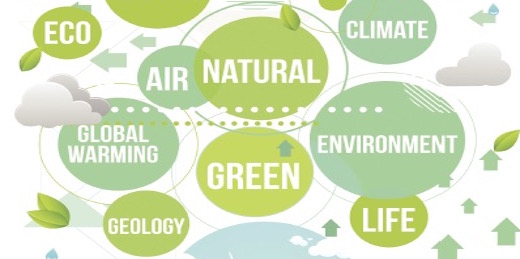The original article, titled “Carbon tax can fund clean energy transition”, was published in Gulf News on 4th January 2017, and can be accessed here.
Carbon tax can fund clean energy transition
Removing fossil fuel, water, electricity and related subsidies will improve energy efficiency and generate substantial environmental and health benefits
Climate change is a deadly threat to our habitat, animals and people. Current annual emissions of greenhouse gases are about 50 billion tonnes of carbon-dioxide-equivalent, compared with about 41 billion tonnes in 2005. An Intergovernmental Panel on Climate Change report has warned that the world is on a path that could, if left unchecked, deliver a global average temperature rise of four degrees Celsius or more by the end of the century — a condition that has not existed on Earth for millions of years! We are in the Anthropocene Age.
COP21 was quickly ratified, in 11 months, versus eight years of the Kyoto protocol, underscoring the shared global consensus on the social and economic dangers posed by global warming. However, the COP21 government commitments and strategies require international, regional and national cooperation between governments, businesses, civil society, organisations and households. While United States President-elect Donald Trump’s stance on climate change (and his nominee for the Environmental Protection Agency) is likely to make the path towards clean energy more difficult, it also offers emerging giants like China and India the opportunity to take the lead in showcasing their commitments towards green energy and lower carbon emissions.
The recent launch of a $1 billion (Dh3.67 billion) clean energy investment fund — Breakthrough Energy Ventures — with Bill Gates of Microsoft; Jack Ma, founder of the Alibaba Group; Mukesh Ambani, chairman and managing director of Reliance Industries; and others as investors, promises implementation of innovative technologies through the support of research and development. This should challenge and inspire investors, governments and entrepreneurs based in the Gulf Cooperation Council (GCC).
The GCC and other countries from the region have committed to renewable energy initiatives — be they the UAE’s target to generate 24 per cent of its electricity from clean energy sources by 2021, or Morocco’s renewable energy target of 52 per cent by 2030. These ambitious objectives need implementation through decarbonisation strategies and objectives that require deep partnership with the private sector. I will bring the perspective of the Clean Energy Business Council on these strategies at the Abu Dhabi Sustainability Week (ADSW).
Pillar one starts with removing fossil fuel, water, electricity and related subsidies, so that the pricing of such resources and services reflects true economic costs and account for externalities. This would improve energy efficiency in all sectors and generate substantial environmental and health benefits.
Pillar two is the imposition of carbon taxes, rather than emissions trading schemes. Businesses and households respond to price as well as non-price incentives and ‘nudges’. Carbon taxes are taxes based on emissions generated from burning fuels. Introducing carbon taxes would shift the energy mix towards renewables, reduce fuel consumption, increase fuel efficiency and sharply reduce the carbon emissions that are driving global warming. A carbon tax creates incentives for energy consumers (both businesses and households) to use cleaner fuels and adopt new clean technologies, thereby reducing the amount they pay in carbon tax. For businesses, investors, entrepreneurs and researchers, carbon taxes would encourage investment and research and development in renewables and clean-tech.
For the GCC, the institution of a carbon tax would also generate substantial revenues for governments, increase energy efficiency and drive decarbonisation strategies. Revenues could range from as low as US$11 billion in Kuwait to as high as $80 billion (Dh294.24 billion) in Saudi Arabia (depending on the tax, consumption, demand elasticity and current price of gasoline). In essence, carbon taxes could raise substantially more revenue than current value added tax proposals.
Pillar three of decarbonisation strategies is overarching climate change legal and regulatory frameworks to support implementation. Institutional frameworks are important because they imply wide-based political commitment and support of climate change policies and investments. None of the countries of our region have established such legislation. The GCC can lead by enacting Climate Change Framework Legislation (laws or regulations with equivalent status) serving as a comprehensive, unifying basis for climate change policy. In this regard, the establishment of Climate Change Ministries (e.g. in the UAE) is a step in the right direction.
The fourth pillar is decarbonisation finance. COP21 commitments will unleash more than $16 trillion of investments in renewable energies and clean technologies. Governments need to set up climate funds — using the proceeds of carbon taxes — for renewables and clean-tech infrastructure and facilitate the financing of renewables R&D and investment through financial markets. For businesses and entrepreneurs, the green and clean economy presents an unprecedented opportunity for innovation, productivity-growth-enhancing investments, along with lower energy costs impacting all activities. There is no trade-off between economic growth and decarbonised economies.






